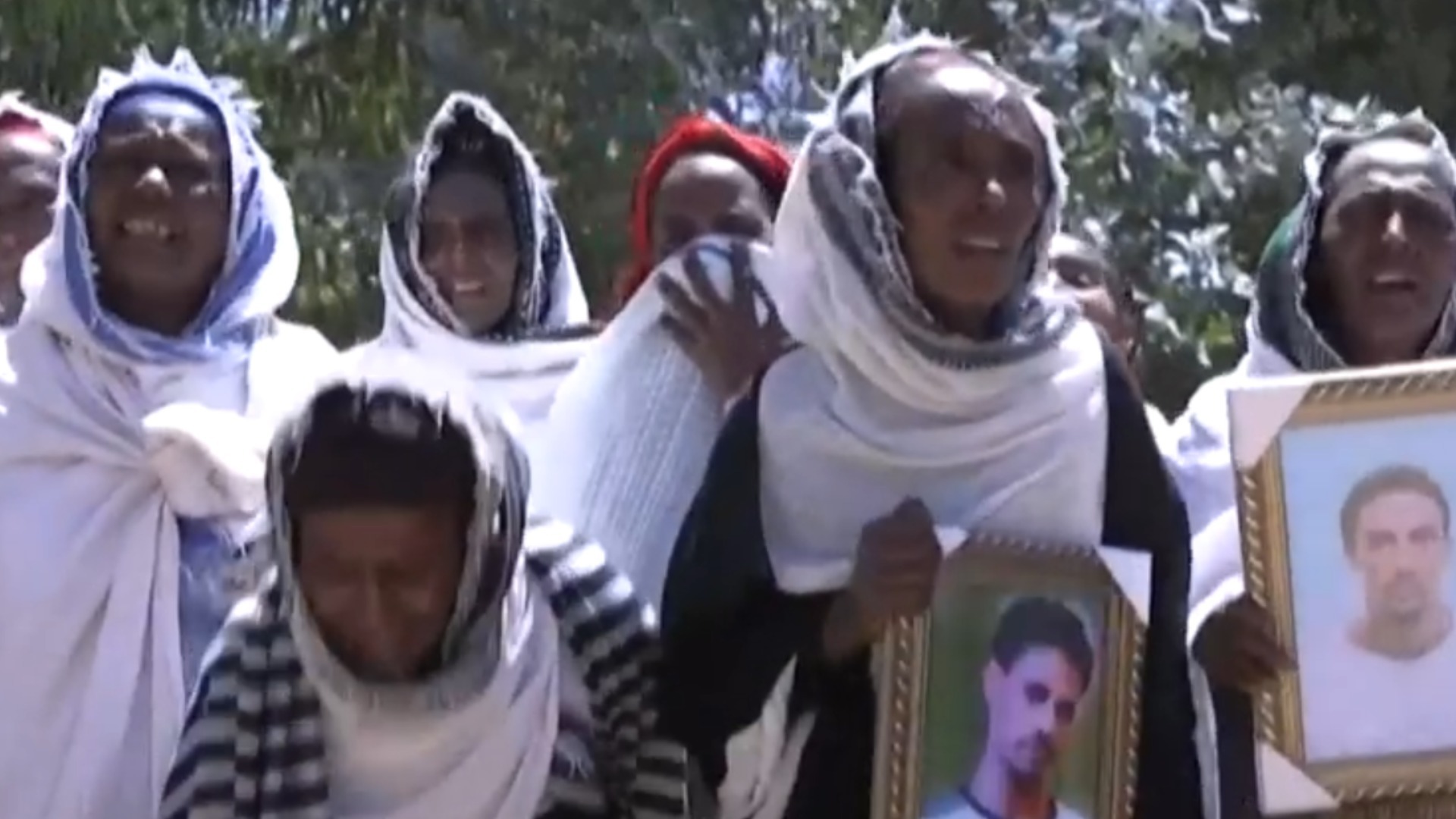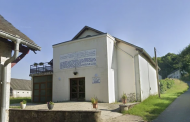Calls for Ethiopia to end a months-long, deadly conflict in the northern Tigray region are intensifying after reports of widespread atrocities. Thousands of people have died and millions were displaced by the fighting. CBS News foreign correspondent Debora Patta joins “CBSN AM” with more.
ANNE-MARIE GREEN: Ethiopia is facing mounting pressure to end a months-long deadly conflict in the northern Tigray region. Thousands of people have been killed and millions have been forced to flee since fighting erupted in November. Earlier this week, Ethiopia’s leader acknowledged that some possible war crimes had been reported amid allegations of ethnic cleansing and sexual violence.
So joining us now to explain what is going on there is Johan– from Johannesburg is Debora Patta. Debora, thank you for joining us. I want to get into these reports of atrocities, but first, I feel like we need to give people some background about the current situation. The current Ethiopian government is in conflict with the former ruling government, which has taken over the northern region of Tigray. But there are also other factions involved in the fighting there. Give us the background. How did we get here?
DEBORA PATTA: I think that’s an important point to consider, Anne-Marie, that this fighting is a result of long-festering tensions between the Ethiopian government and the semi-autonomous region of Tigray. It began in November with an offensive ordered by the prime minister. He ordered an offensive against the Tigray region after accusing them of attacking a military base. And then the fighting continued thereafter. But as I say, this really is a result of simmering tensions between the central government and the semi-autonomous region. The TPLF, the Tigrayan People’s Liberation Front, has enjoyed rather unfair political dominance and economic dominance for many decades, but they ruled the area, and there was a lot of stability.
But then there were also complaints that there were media freedoms that were curtailed, there was torture of political opponents. And there were a lot of anti-government protests in 2018, which saw Prime Minister Abiy Ahmed actually come to power. But what he began immediately was to strengthen central government control and reduce the power of regions like Tigray, which caused a lot of tension. He purged the government of TPLF officials, accusing some of them of committing corruption and other human rights violations. And so this tension continued to grow until we have the situation today.
But what is perhaps more worrying and bears pointing out is that, this year, we also saw Eritrean troops join the fighting, neighboring Eritrea. Now, Eritrea was involved in a long war with Ethiopia. It used to actually be part of Ethiopia, and then, after a war of independence in the early ’90s, it became its own nation. And then another war began with Ethiopia in 1998. And in fact, Abiy Ahmed actually won the Nobel Peace Prize for ending that particular conflict. So the presence of Eritrean forces, who have been accused of some of the worst atrocities in this region, has resulted in a lot of condemnation.
And for the first time this week, after blatant denials from Abiy Ahmed and his officials, he acknowledged that indeed Eritrean forces had crossed the border, and that they had done so, he said, because they were worried that their longtime foes, the TPLF, who bore the brunt of the fighting during that long conflict with Eritrea, would attack them, and that they promised to leave once Ethiopia was able to secure that border. But he said that they had committed atrocities, that there were reports of this, and that that would not be tolerated. It’s the first acknowledgment of anything of this sort from Abiy Ahmed.
ANNE-MARIE GREEN: And for the longest time, it was very difficult to get any information about what was happening there. Aid groups were not able to get in there. But we are learning some more horrific details of a brutal execution. And this is coming from an account by Doctors Without Borders, an aid group. What can you tell us?
DEBORA PATTA: And why that is so important, this account from Doctors Without Borders, MSF, is exactly why– what you’ve said, Anne-Marie, is that we can’t get details. Journalists have been banned for the area, so Abiy Ahmed, who came in on a reform agenda, is now using those same tactics now that he is under pressure. There’s been a media blackout of late. In recent weeks, a few journalists have been allowed in, and so reports are starting to filter through. But this was an eyewitness account by the MSF, by Doctors Without Borders.
Their clearly marked vehicle was stopped. They were ordered out. Their driver was beaten up, but then allowed back in. But there were also two public buses that were stopped by Ethiopian soldiers. The passengers were offloaded. The men and women were separated, and then the men were shot at point blank range. There were at least four men. So this is the first eyewitness account of a group like Doctors Without Borders that we’re hearing of. And it backs up, sadly, what are even perhaps worse atrocities that have been committed in that region. We’re hearing reports of massacres, and also of horrific gender violence, Anne-Marie.
ANNE-MARIE GREEN: Yes, can we talk a little bit about that? The UN has called for a stop to what they’re calling indiscriminate and targeted attacks against civilians, including rape and other horrific force– forms, rather– of sexual violence. Why is gender violence being used as a main weapon here?
DEBORA PATTA: Well, sadly, rape has been a weapon of war in many conflicts around the world. And I guess Ethiopia is no exception. And I think what’s particularly tragic is that this conflict seems to be bordering on ethnic cleansing. And certainly, the reports that are coming from women who have been denigrated, shamed, humiliated, and their souls shattered by this kind of violence is of ethnic cleansing. It’s the language of retribution. Reports have come out that when the women are attacked by these men, it’s Ethiopian forces together with Eritrean soldiers, words like we have come to cleanse you of your Tigrayan blood are used. So very strong ethnic cleansing overtones there.
And the actual reports of the atrocities are absolutely horrific. In a very, very devastating report broadcast on British channel 4 in the UK, women spoke– one woman, in particular– of her and five other women who were raped repeatedly over 10 days by these soldiers. She said that she was tied to a rock, drugged, injected with drugs, stripped, stabbed, and then raped repeatedly by 30 men over a period of 10 days. So really horrific reports.
And again, the first time this week that Prime Minister Abiy Ahmed has even acknowledged that there were atrocities committed. And he said that any Ethiopian soldier found guilty of raping a woman or of any other gender abuses committed would be held accountable. But simultaneously, he also said that there was a propaganda of exaggeration. So we have yet to see how seriously he takes those reports of atrocities committed against women.
ANNE-MARIE GREEN: Well, the world is taking notice, finally. The UN is speaking out. The Secretary of State, I know, I believe has contacted Ethiopian leaders. And hopefully, international pressure can gain some control over this, or demand some control over this. Debora, thank you so much for bringing us up to speed.








































admin in: How the Muslim Brotherhood betrayed Saudi Arabia?
Great article with insight ...
https://www.viagrapascherfr.com/achat-sildenafil-pfizer-tarif/ in: Cross-region cooperation between anti-terrorism agencies needed
Hello there, just became aware of your blog through Google, and found ...